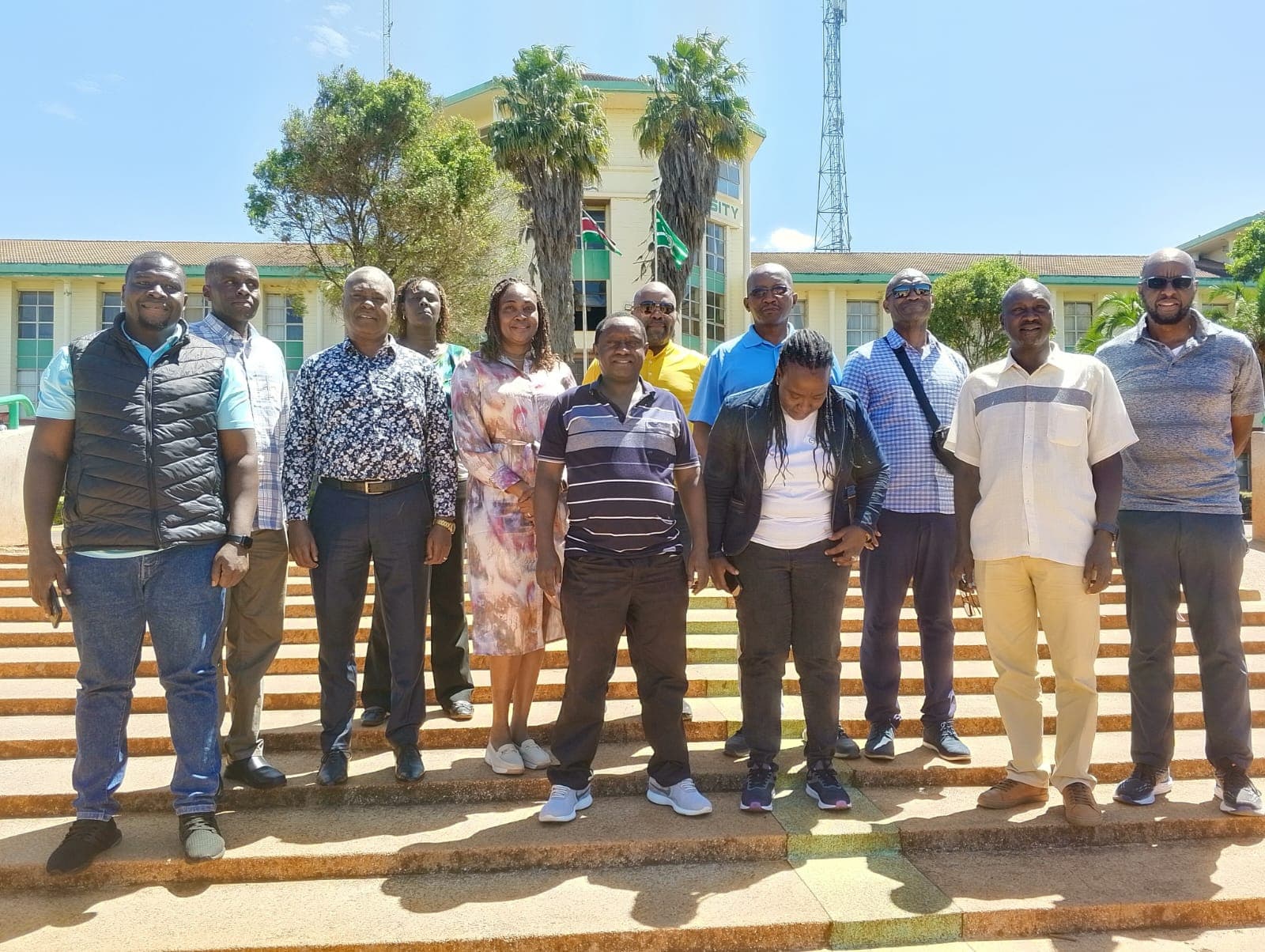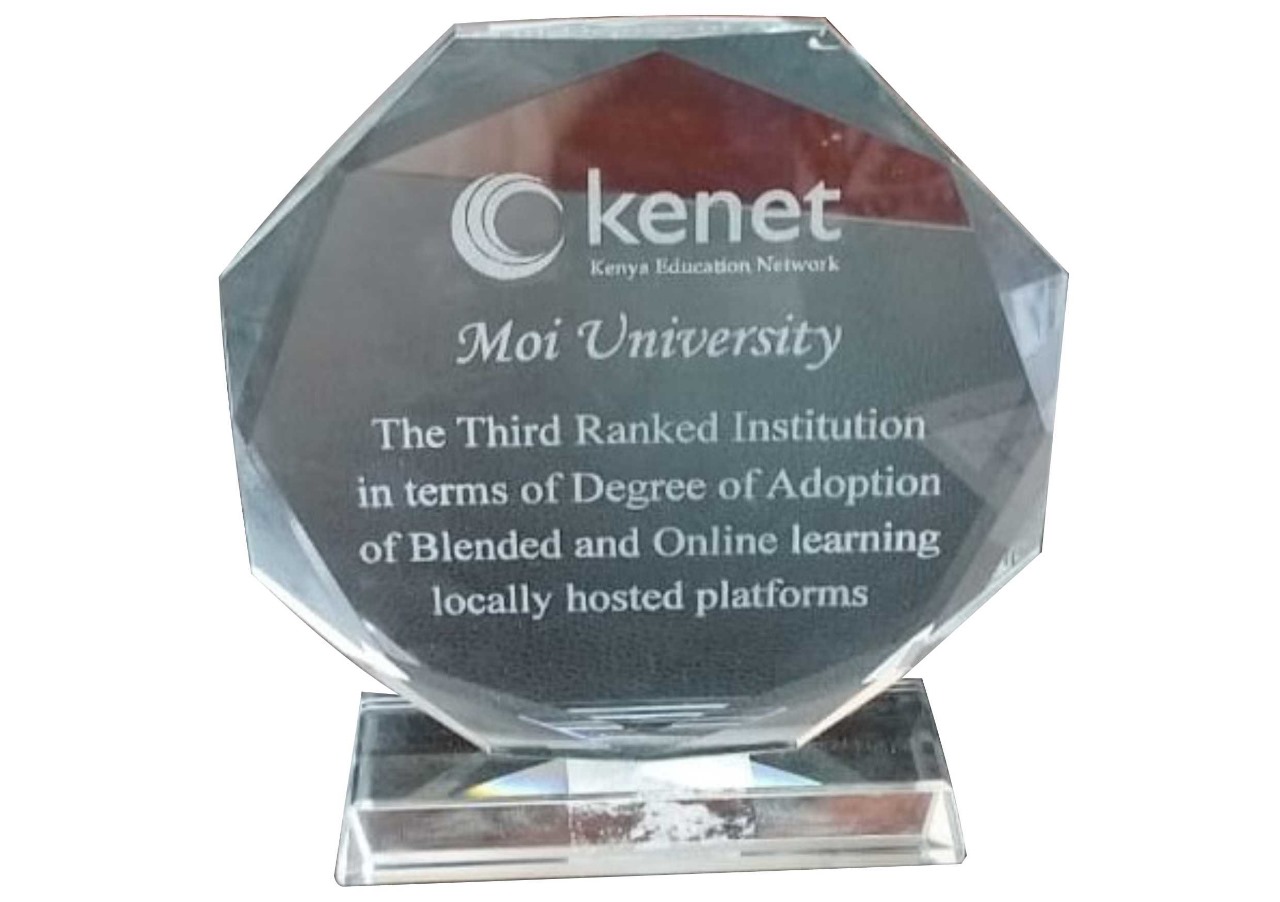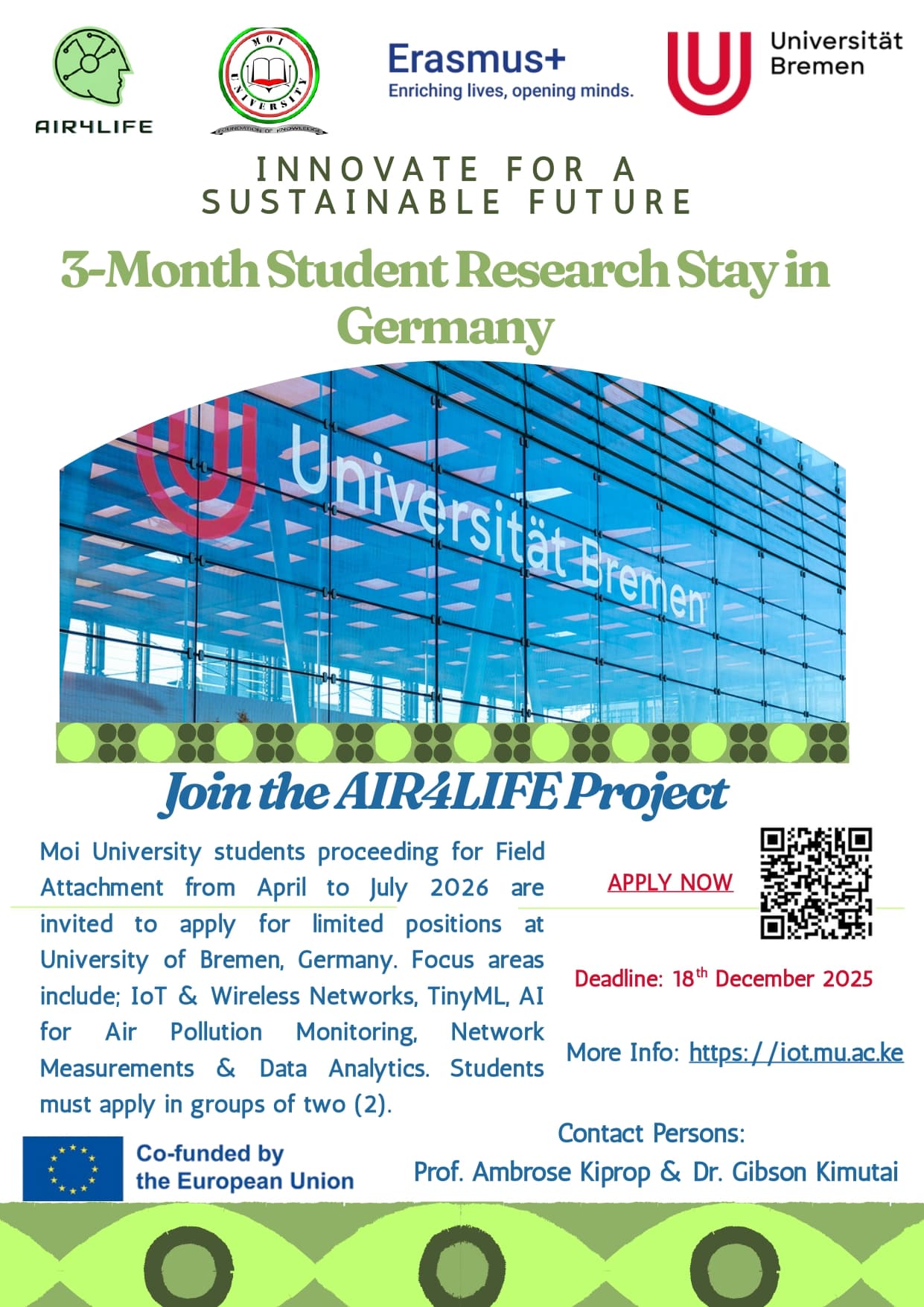In envisioning a sustainable future, Moi University embraces the imperative of clean energy utilization and the enlightenment of its community on renewable technologies. This vision materializes in the proposal for a transformative initiative: the inception of a 30 MW renewable energy park within its expansive main campus by the target year of 2050. Additionally, the University endeavors to position itself as a leading premier hub for research in Green Hydrogen, Ammonia, eco-friendly Fertilizers, and green aviation fuels across the African continent. The suggested project offers a viable solution to open doors for sustainable manufacturing and spur industrialization for the growth of the nation and is in line with the Kenya’s Green Hydrogen Strategy and Roadmap.
With foresight and determination, Moi University embarks upon a phased implementation strategy for this pioneering project. The inaugural phase marks the deployment of a 5 MW solar energy facility coupled with green hydrogen and green mineral fertilizers research infrastructure. This initial step signifies the commencement of a journey towards achieving energy autonomy and assuming a mantle of environmental stewardship by the designated milestone of 2030.
In the initial phase, the University will commence its decarbonization efforts by targeting specific buildings within the main campus. Surplus electricity generated will be efficiently stored through electrolysis, facilitating the conversion of excess power into hydrogen using a compact electrolyzer (power-to-hydrogen), thereby ensuring availability during nocturnal periods and colder seasons through reconversion (hydrogen-to-power).
Furthermore, dedicated photovoltaic (PV) arrays will be deployed specifically for powering the electrolyzer, thereby ensuring a continuous supply of green hydrogen. This surplus hydrogen will be commercialized, serving as a valuable industrial feedstock for entities reliant on hydrogen- based processes. Moreover, the oxygen byproduct of electrolysis will undergo purification and find purpose in essential medical applications, benefiting not only Moi Teaching and Referral Hospital in Eldoret but also other healthcare facilities across the country.
Moreover, the green hydrogen produced will undergo further processing into ammonia or ammonia-based fertilizers such as Urea and DAP. Subsequent conversion into methanol will enable the University to diversify its revenue streams by catering to industries reliant on methanol as a raw material.
Furthermore, it’s essential to emphasize that the hub operates as a non-profit endeavor. All generated funds will be directed towards supporting research activities across more than 15 faculties within Moi University. Furthermore, these resources will be allocated to facilitate the university’s staff and students in actively engaging in exchange projects, conducting studies, and pursuing research initiatives both domestically and abroad. Moreover, the funds will contribute to the upgrading and modernization of laboratories and university facilities. By reducing reliance on external grants, this financial model ensures the university’s autonomy in enhancing its infrastructure and academic resources, fostering a dynamic environment for learning, research, and innovation.
The project shall promote e-learning in the university. During power outages, the park will enable uninterrupted studies and promote safety.
The park will further demonstrate the diverse applications of renewable energy, from powering homes to entire communities, emphasizing its role in reducing greenhouse gas emissions and air pollution while enhancing energy supply diversity and reducing dependence on imported fuels.
Guided by sociological perspectives, the renewable energy park project will emphasize community engagement, social impact assessment, equitable benefits and long-term sustainability.
By incorporating sociological insights, the project will become a model for inclusive and sustainable renewable energy initiatives, benefiting both the environment and local communities.
THE PROJECT GOALS ARE TO:
- Install world class Renewable Energy Park at Moi University.
- Produce green hydrogen and ammonia for demonstration, research and training as a key driver of energy transition towards a greener and sustainable energy future for Kenya and the region.
- Establish partnerships with development and research partners to promote research and uptake of renewable energy.
- Scale up training and capacity building at Moi University on renewable energy.
- Supply institutions affiliated to Moi University (nursery school, primary school, secondary school) and surrounding community with clean energy.
- Proactively engage in collaborative efforts to tackle the impacts of climate change and promotion of environmental stewardship through decarbonization.
- Disseminate to the community, information on clean and sustainable energy through demonstration units on clean energy



